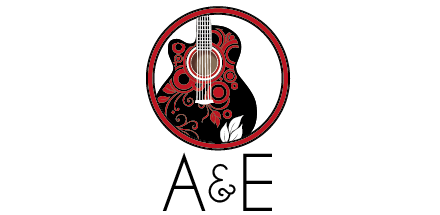Fermentation is the chemical breakdown of a substance by bacteria, yeasts, or other microorganisms. It’s the process used in making of beer, wine, and liquor. This process always takes time and can’t be rushed. Such is the case with Cannon Distillery, which finally opened its doors last week, four long years after signing the lease on its space. West Ashley’s first distillery is located just a couple doors down from West Ashley’s first brewery, Charles Towne Fermentory. (West Of’s office is located right between the two, so forgive the typos!)
The reasons for the delay are many, explains Lewis Dodson, who is co-owner of Cannon Distillery along with his fiancé Jessica Krofta and Kris Kincaid. The three also are partners with the neighboring Avondale Wine & Cheese. Dodson also co-owns The Drop-In Deli & Bar on Folly Beach and Kincade owns Locklear’s on Little Oak and the soon-to-be open restaurant in the former Fork Café space on Ashley River Road.
Last week, just hours before opening the doors to the public for the first time, Dodson took a break from last minute preparations and explained why it took so long before folks could finally have their first sip of a Cannon Distillery spirit and why it was worth the wait.
While he and his partners have experience opening bars and restaurants, Dodson admits that the spirits business was a whole new game for them and that there was a bit of a learning curve. He concedes that some of the hold-up was based on their own missteps and some was just good old-fashioned government red tape.
“We had an idea how to make alcohol and we knew how to run a business. But we didn’t know how to run a business that makes alcohol,” says Dodson. “The amount of regulations from the city, the state, and the federal government was mind blowing.”
Dodson explains that before someone can even get a state license, they have to have a facility. So on Sept. 1, 2013 he and his partners signed a lease at 813-A Savannah Hwy., a former martial arts studio, with no idea if they would even be allowed to run a distillery in the location. But that’s how the process works, explains Dodson.
Lucky for them, their state micro-distillery license was approved relatively quickly. Then the next step is to apply for a federal license, which can’t be done until you have a still number, which you can’t get until you purchase your still, which is an apparatus used to distill alcohol.
So they had a custom still built for the space. The still took around 15 months to have built and installed. After passing the rigorous background checks necessary for the federal license, they were able to go to the City of Charleston to obtain building permits and begin the local licensing process, which took the longest of all. Meanwhile, their very expensive still was sitting unused in the building, which they had been paying rent on for more than three years without having any revenue or even a chance to break in and test their equipment.
“Every still is like an instrument. You don’t know how it’s going to sound until you play it,” says Dodson, who was luckily allowed to start making liquor around March of this year. Then last week, after four long years, Cannon Distillery officially opened it’s doors to the public. Dodson explains that the distillery is mainly a manufacturing facility, but the state does allow an educational nature to what they do and they can give tastings in conjunction with distillery tours.
“We can make you a little craft cocktail that features our craft spirits,” says Dodson, who explains that customers are allowed to sample three ounces per person per day. There is also a gift shop where people can buy Cannon Distillery spirits, T-shirts, hats, and other merchandise. Tours are offered every half hour Wednesday through Saturday between 1-7 p.m.
Dodson admits that the extra time it took to open allowed him and his partners to learn more about the business and the process of making alcohol on that scale and get some really good ideas of what they want to make moving forward. Initially, Cannon Distillery is offering a standard vodka that is a 100-percent corn vodka that has been seven-times distilled. It is made with local corn from Geechie Boy Mill on Edisto Island. “Russians use potatoes, the Polish use rye, the Dutch and French make vodka from either grapes or grain, says Dodson. “But this is America. This is the south. We use corn.”
Dodson takes pride that all of Cannon Distillery’s corn comes from a 30 mile radius, as are the beans they use in their coffee vodka, which infuses locally-roasted coffee from Cup Roasters on James Island. Cannon Distillery also makes a chai tea vodka. “We’re looking to come out with a liqueur and other infusions before the winter season. We’re really looking forward to doing some fun boutique and seasonal spirits,” says Dodson. “We have a really great whiskey recipe too, so maybe next year we can barrel it and then it’s another 6 years after that … So we’re 7 years away from having a great whiskey.”
Dodson likens the rise in craft spirits to that of the craft beer world, which over the last decade has seen an explosion in business. In Charleston alone, we went from having one craft brewery to having more than 20 and more on the way. “When people realize they can buy a product that is made near them, with grain that comes from near them, and get a product that is just as good if not better than brands coming from overseas, then craft spirits will catch on just like craft beer did,” says Dodson, adding we’re probably still a few years away from the craft spirit boom. He’s banking that Cannon Distillery will be ahead of the curve. They certainly are in West Ashley.













